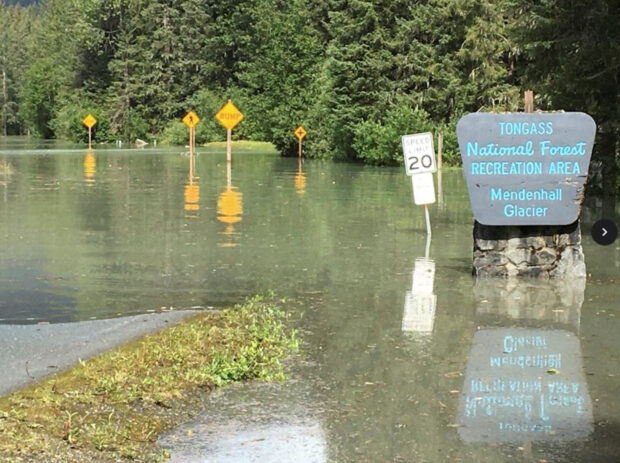
View of flooding following a glacial dam outburst, in Juneau, Alaska, U.S., in this picture released on August 5, 2023 and obtained from social media. The National Weather Service Juneau/via REUTERS
Record flooding struck Alaska’s capital city on Saturday after a glacial dam outburst, destroying at least one structure and prompting city officials to issue evacuation orders for residents on one street.
The National Weather Service (NWS) received reports of large trees collapsing into the Mendenhall River near Juneau on Saturday night as water levels rose, eroding the banks.
Glacial outburst flooding happens when trapped water escapes through cracks in thinning ice dams, a phenomenon that has increased around the world as a result of climate change.
The water level of Mendenhall Lake reached nearly 15 feet (4.6 m) early Sunday morning, a 3-foot rise over the previous record set in 2016, and 5 feet over “moderate” flood levels, according to the NWS.
Water levels were receding rapidly on the Mendenhall River in Alaska on Sunday morning, but a flood warning remained in effect until 10 a.m. local time, the NWS said.
Such extreme weather is expected to increase as a result of human-induced climate change, with scientists reporting that it played an “absolutely overwhelming” role in the record-breaking heat waves that swept North America, Europe and China in July.
Climate change-driven glacial melt and unusually heavy monsoon rains submerged large swathes of Pakistan last year, damaging crops and infrastructure and killing at least 1,700 people.
RELATED STORIES


